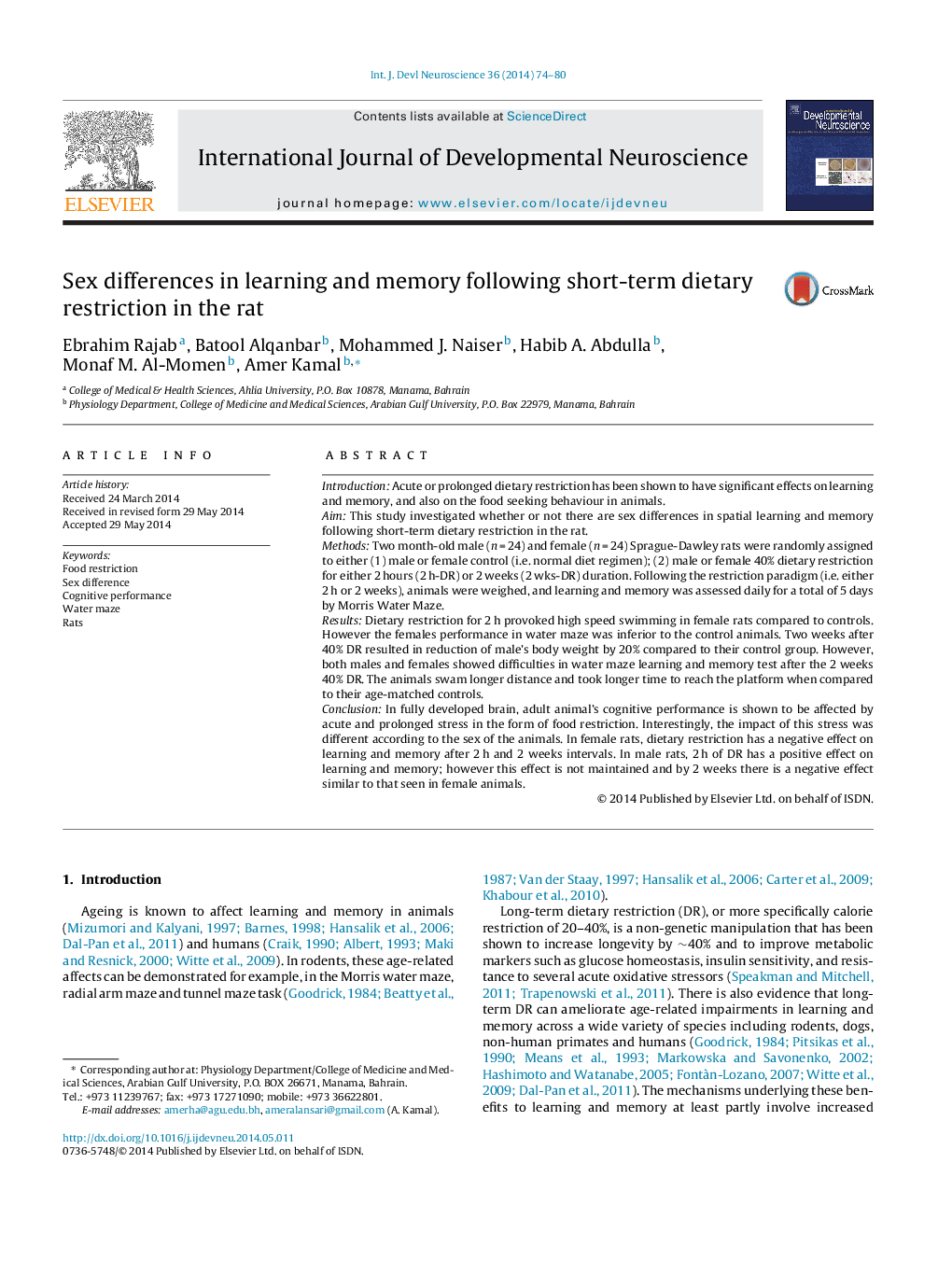| Article ID | Journal | Published Year | Pages | File Type |
|---|---|---|---|---|
| 2785910 | International Journal of Developmental Neuroscience | 2014 | 7 Pages |
•Two groups of rats had daily dietary restriction for 2 h and for 2 weeks.•Both groups were tested for learning in water maze.•Two hours restriction enhanced the male and deteriorates the female performances.•Both sexes were negatively affected by 2 weeks food restriction.
IntroductionAcute or prolonged dietary restriction has been shown to have significant effects on learning and memory, and also on the food seeking behaviour in animals.AimThis study investigated whether or not there are sex differences in spatial learning and memory following short-term dietary restriction in the rat.MethodsTwo month-old male (n = 24) and female (n = 24) Sprague-Dawley rats were randomly assigned to either (1) male or female control (i.e. normal diet regimen); (2) male or female 40% dietary restriction for either 2 hours (2 h-DR) or 2 weeks (2 wks-DR) duration. Following the restriction paradigm (i.e. either 2 h or 2 weeks), animals were weighed, and learning and memory was assessed daily for a total of 5 days by Morris Water Maze.ResultsDietary restriction for 2 h provoked high speed swimming in female rats compared to controls. However the females performance in water maze was inferior to the control animals. Two weeks after 40% DR resulted in reduction of male's body weight by 20% compared to their control group. However, both males and females showed difficulties in water maze learning and memory test after the 2 weeks 40% DR. The animals swam longer distance and took longer time to reach the platform when compared to their age-matched controls.ConclusionIn fully developed brain, adult animal's cognitive performance is shown to be affected by acute and prolonged stress in the form of food restriction. Interestingly, the impact of this stress was different according to the sex of the animals. In female rats, dietary restriction has a negative effect on learning and memory after 2 h and 2 weeks intervals. In male rats, 2 h of DR has a positive effect on learning and memory; however this effect is not maintained and by 2 weeks there is a negative effect similar to that seen in female animals.
